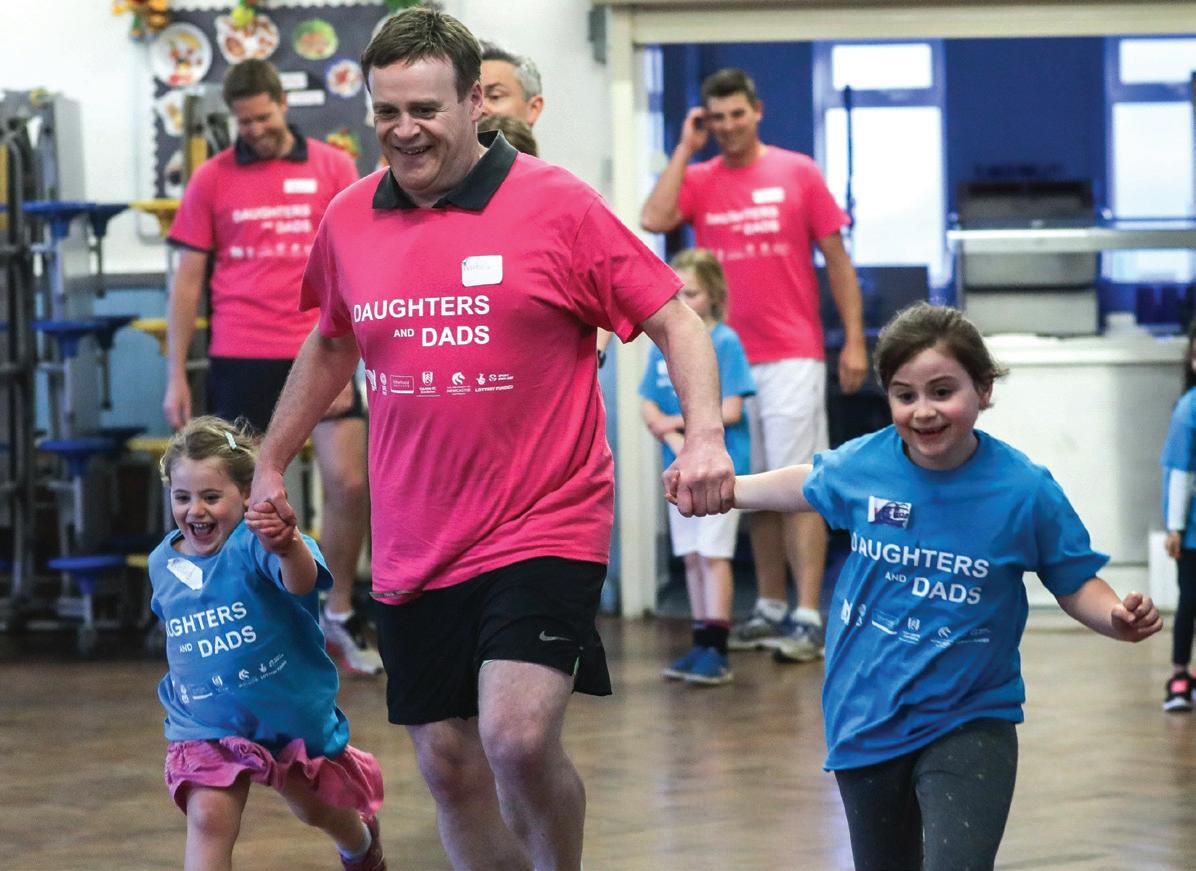
2 minute read
Column: Women in Sport
Building male allies for women’s sport
Project Manager Women in Sport
Advertisement
TThe formative years of your life, and the experiences you have, help to build attitudes, perceptions and behaviours that will live with you for a lifetime. Parents are significant influences in young people’s lives, and it’s vital they understand their role in creating positive lifelong experiences and memories through sport and exercise for their children. Girls don’t grow up hating sport, it’s the wider influences across society that often tells girls that sport isn’t for them. The continual reinforcement that they aren’t good enough, sport is for boys or the constant messaging that girls should be valued on their appearance. Why do we let this be the norm? Why can’t girls be defined by how they use their body rather than how it looks? Why can’t girls be valued for being strong and determined? These unhealthy and constraining values that have been placed on girls drive negative beliefs and perceptions about possibilities.
The DADs programme breaks down gender norms
About Women in Sport
The charity Women in Sport was founded in 1984 and its vision is that noone is excluded from the joy, fulfilment and lifelong benefits of sport and exercise. Recognising that gender stereotypes and institutional bias are holding women back in life and in sport, the charity’s purpose is to give every woman and girl the opportunity to take part and inspire them to do so.
The charity has a track record of success in securing change, based on its deep understanding of the needs and aspirations of women and girls at each life stage and its determination to break down gender inequalities through its work within the sports sector and beyond.
Find out more about Women in Sport here: www.womeninsport.org
The Daughters and Dads Active and Empowered (DADs) programme at Women in Sport breaks down these outdated gender norms and expectations. Through educating and empowering the influencers in girls’ lives as well as inspiring girls themselves, we can create a society of opportunity, in which all girls can fulfil their ambitions and potential. We need a collective and collaborative approach to break down the entrenched barriers young girls face to living healthy, happy and active lives. Gender stereotypes aren’t a problem girls and women can solve alone – men and boys need to stand up and be allies for change. We need to create space for women and girls, call out limiting language and behaviour and provide an inclusive environment. This starts with education; understanding what life looks like through a gendered lens by listening to women and girls. Together we can create an equal and equitable society. ●










